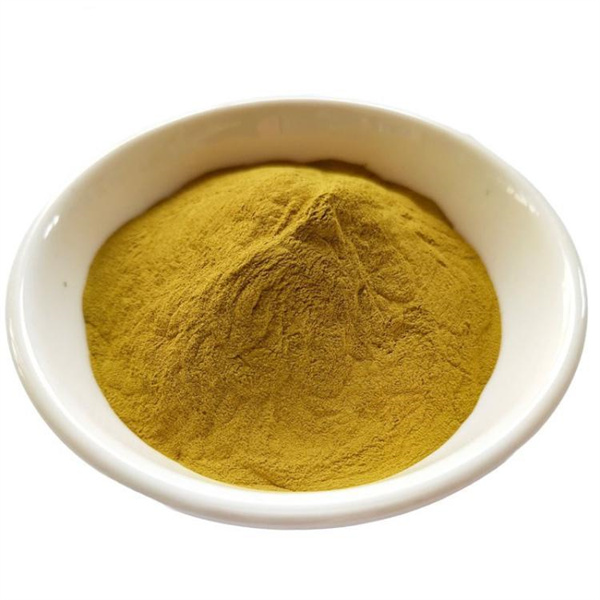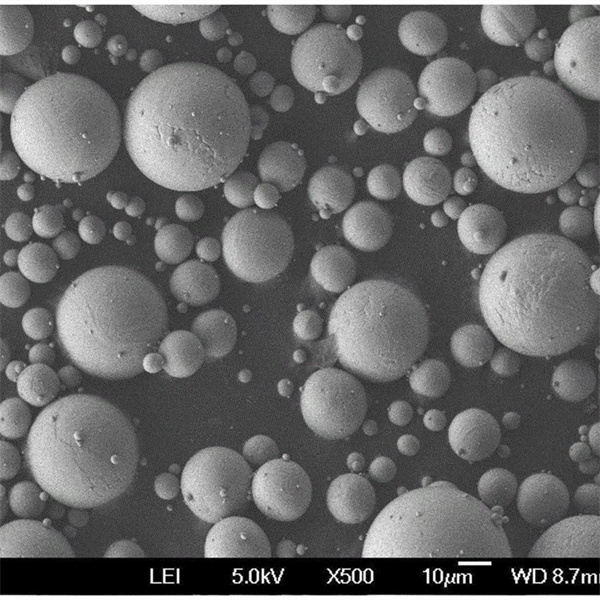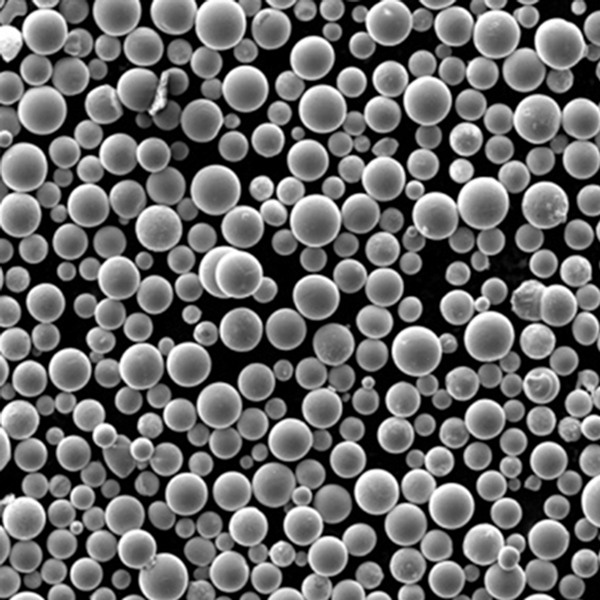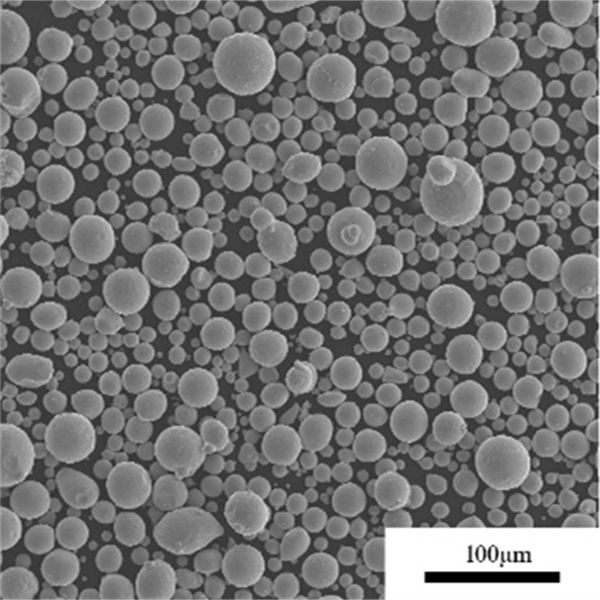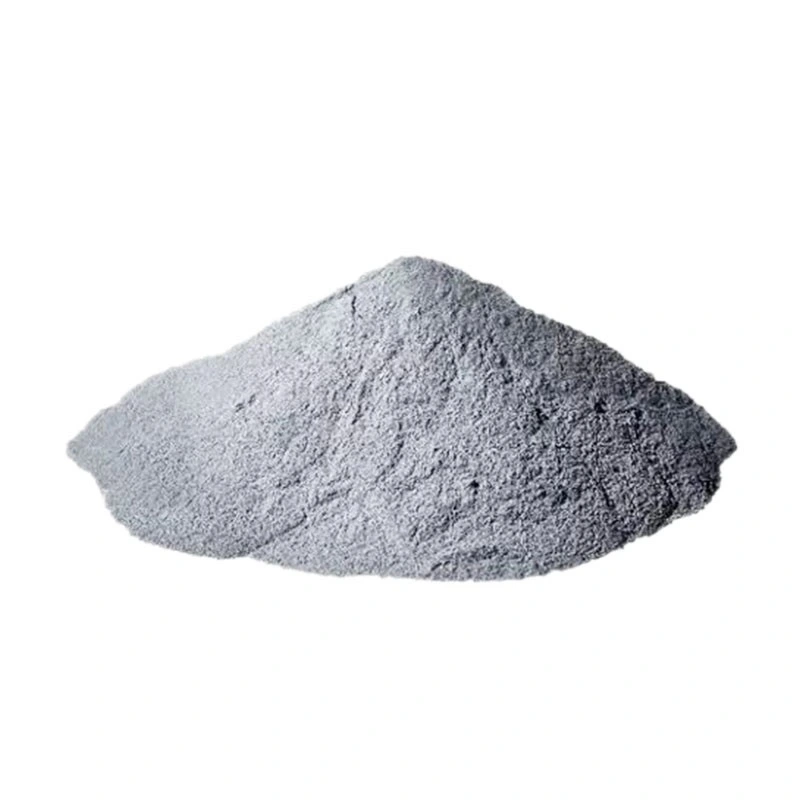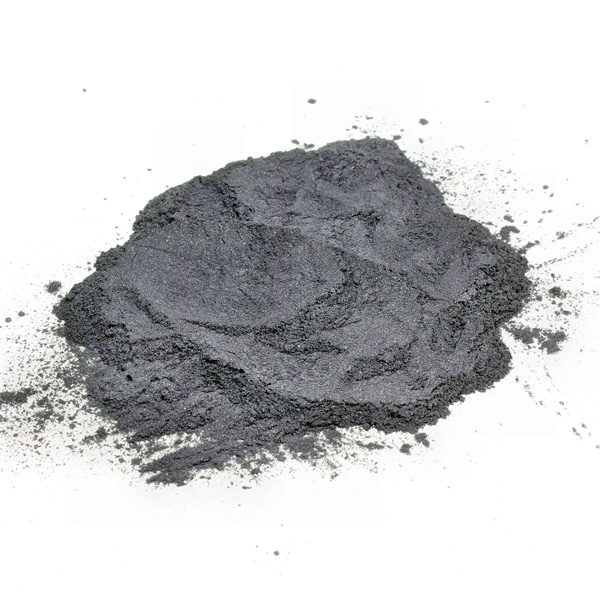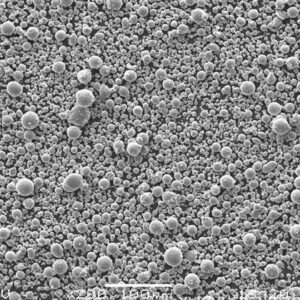Bubuk CuSn10
Serbuk CuSn10 adalah paduan tembaga-timah yang mengandung sekitar 10% timah dan sisanya tembaga. Paduan ini menawarkan kombinasi yang sangat baik antara kekuatan, keuletan, ketahanan korosi, ketahanan aus, dan sifat anti gesekan.
MOQ rendah
Menyediakan jumlah pesanan minimum yang rendah untuk memenuhi kebutuhan yang berbeda.
OEM & ODM
Menyediakan produk dan layanan desain yang disesuaikan untuk memenuhi kebutuhan pelanggan yang unik.
Stok yang memadai
Memastikan pemrosesan pesanan yang cepat dan memberikan layanan yang andal dan efisien.
Kepuasan Pelanggan
Menyediakan produk berkualitas tinggi dengan mengutamakan kepuasan pelanggan.
bagikan produk ini
Daftar Isi
Gambaran Umum Bubuk CuSn10
Serbuk CuSn10 adalah paduan tembaga-timah yang mengandung sekitar 10% timah dan sisanya tembaga. Paduan ini menawarkan kombinasi yang sangat baik antara kekuatan, keuletan, ketahanan korosi, ketahanan aus, dan sifat anti gesekan.
Sifat utama dan aplikasi bubuk CuSn10 meliputi:
Sifat dan Karakteristik Serbuk CuSn10
| Properti | Detail |
|---|---|
| Komposisi | Tembaga 90%, timah 10% |
| Kepadatan | 8,8 g/cc |
| Bentuk partikel | Tidak teratur, bersudut |
| Kisaran ukuran | 5-150 mikron |
| Kepadatan yang tampak | Kepadatan sebenarnya hingga 50% |
| Kemampuan mengalir | Sedang |
| Kekuatan | Sangat baik untuk bubuk paduan Cu |
| Daktilitas | Bagus. |
| Ketahanan korosi | Sangat bagus |
CuSn10 banyak digunakan dalam sangkar bantalan, bushing, batang las, dan suku cadang aus di seluruh sektor otomotif, kelistrikan, dan industri.
Komposisi Serbuk CuSn10
Komposisi khas bubuk CuSn10:
Komposisi Serbuk CuSn10
| Elemen | Berat % |
|---|---|
| Tembaga (Cu) | Sisa |
| Timah (Sn) | 9-11% |
| Timbal (Pb) | 0,2% maks |
| Seng (Zn) | 0,5% maks |
| Kotoran lainnya | 0,1% maks |
- Tembaga memberikan konduktivitas yang sangat baik, ketahanan terhadap korosi, keuletan
- Timah meningkatkan kekuatan, kekerasan, dan ketahanan aus
- Timbal, seng, dan kotoran lainnya dikontrol dengan cermat
Rasio Cu-Sn yang dioptimalkan memberikan kombinasi yang sangat baik antara kekuatan, keuletan, dan kemampuan manufaktur.
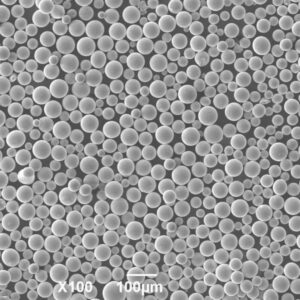
Sifat Fisik Serbuk CuSn10
Sifat Fisik Serbuk CuSn10
| Properti | Nilai |
|---|---|
| Kepadatan | 8,8 g/cc |
| Titik leleh | 1020-1040°C |
| Konduktivitas termal | 55 W/mK |
| Resistivitas listrik | 7-9 μΩ-cm |
| Suhu rekristalisasi | 150-250°C |
| Suhu layanan maksimum | 250°C |
- Kepadatan lebih tinggi dari tembaga
- Titik leleh berkurang dibandingkan dengan tembaga murni
- Mempertahankan konduktivitas yang baik
- Rekristalisasi memungkinkan pemadatan bubuk
- Dapat menahan suhu pengoperasian yang cukup tinggi
Sifat fisik memungkinkan penggunaan CuSn10 dalam komponen listrik yang membutuhkan konduktivitas dan kekuatan yang baik.
Sifat Mekanik Serbuk CuSn10
Sifat Mekanik Serbuk CuSn10
| Properti | Nilai-nilai |
|---|---|
| Kekerasan | 80-110 HB |
| Kekuatan tarik | 350-550 MPa |
| Kekuatan luluh | 220-320 MPa |
| Perpanjangan | 10-20% |
| Modulus elastisitas | 110-140 GPa |
- Kekuatan yang sangat baik untuk bubuk paduan tembaga
- Secara signifikan lebih tinggi dari bubuk tembaga murni
- Keuletan yang baik untuk komposisi timah 10%
- Nilai kekerasan yang cocok untuk aplikasi keausan
- Properti tergantung pada metode produksi dan porositas
Sifat mekanik memungkinkan penggunaan bubuk CuSn10 dalam komponen listrik dan gesekan berkekuatan tinggi.
Aplikasi Bubuk CuSn10
Aplikasi khas bubuk CuSn10 meliputi:
Aplikasi Bubuk CuSn10
| Industri | Contoh Aplikasi |
|---|---|
| Otomotif | Bantalan, bushing, kampas rem |
| Listrik | Elektroda las, konektor, kontak |
| Industri | Sangkar bantalan, segel, impeler |
| Manufaktur | Komponen perkakas yang disinter |
| Minyak dan gas | Bushing, katup bola |
Beberapa penggunaan produk tertentu:
- Sangkar bantalan yang membutuhkan sifat antifiksi
- Washer bushing dan dorong dalam aplikasi beban tinggi
- Bantalan rem otomotif dan kampas kopling
- Konektor dan pin listrik
- Batang las dan logam pengisi pasta solder
- Komponen perpipaan seperti katup dan flensa
Kombinasi yang sangat baik antara kekuatan, keuletan, dan biaya membuat CuSn10 menjadi pilihan populer untuk aplikasi ini.
Spesifikasi Bubuk CuSn10
Spesifikasi utama untuk bubuk CuSn10 meliputi:
Spesifikasi Bubuk CuSn10
| Standar | Deskripsi |
|---|---|
| ISO 44001 | Serbuk tembaga dan paduan tembaga - Spesifikasi |
| ASTM B602 | Spesifikasi standar untuk bubuk paduan tembaga |
| EN 1982 | Spesifikasi untuk ingot dan coran tembaga dan paduan tembaga |
| JIS H2111 | Bubuk perunggu |
Ini menentukan:
- Batas komposisi kimia
- Metode produksi - atomisasi
- Sifat fisik dan mekanik yang diperlukan
- Tingkat pengotor yang dapat diterima
- Distribusi ukuran partikel
- Protokol pengujian
Kepatuhan memastikan kesesuaian untuk aplikasi yang dimaksudkan di seluruh pasar global.
Ukuran Partikel Serbuk CuSn10
Distribusi Ukuran Partikel Serbuk CuSn10
| Ukuran Partikel | Karakteristik |
|---|---|
| 5-25 mikron | Kelas ultrafine untuk kepadatan dan permukaan akhir yang tinggi |
| 15-45 mikron | Ukuran umum untuk pengepresan dan sintering |
| 45-150 mikron | Ukuran yang lebih besar untuk kemampuan aliran bubuk yang lebih baik |
- Partikel yang lebih halus memungkinkan densifikasi yang lebih besar
- Partikel yang lebih besar meningkatkan sifat aliran bubuk
- Ukuran dipilih berdasarkan properti bagian akhir yang dibutuhkan
- Tersedia bentuk bulat dan tidak beraturan
Mengontrol distribusi ukuran partikel mengoptimalkan karakteristik pengepresan dan densitas sinter akhir.
Kepadatan Nyata Serbuk CuSn10
Kepadatan Nyata Serbuk CuSn10
| Kepadatan yang tampak | Detail |
|---|---|
| Kepadatan sebenarnya hingga 50% | Untuk bubuk morfologi tidak beraturan |
| 4,5-6,5 g/cc | Meningkat dengan kepadatan kemasan yang lebih besar |
- Kepadatan semu yang lebih tinggi meningkatkan aliran bubuk dan kekompakan
- Kepadatan hingga 60% dimungkinkan dengan bubuk bulat yang dioptimalkan
- Kepadatan semu yang tinggi memungkinkan pemadatan yang lebih mudah ke bagian hijau
Kepadatan semu yang lebih tinggi menghasilkan produktivitas manufaktur dan kualitas komponen yang lebih baik.
Metode Produksi Bubuk CuSn10
Produksi Bubuk CuSn10
| Metode | Detail |
|---|---|
| Atomisasi | Aliran paduan yang meleleh dipecah menjadi tetesan halus yang mengeras menjadi bubuk |
| Peleburan induksi | Tembaga murni dan timah melebur bersama di bawah atmosfer yang terkendali |
| Atomisasi gas inert | Mencegah oksidasi partikel selama produksi |
| Pengayakan | Mengklasifikasikan bubuk ke dalam rentang ukuran partikel yang berbeda |
- Atomisasi otomatis memungkinkan produksi skala besar
- Peleburan dan atomisasi yang terkendali meminimalkan kotoran
- Gas inert mencegah oksidasi bubuk
- Pasca-pemrosesan memungkinkan penyesuaian ukuran partikel
Kontrol proses yang ketat menghasilkan kualitas bubuk yang andal dan karakteristik yang dapat diulang.
Harga Bubuk CuSn10
Harga Bubuk CuSn10
| Faktor | Dampak pada Harga |
|---|---|
| Tingkat kemurnian | Kemurnian yang lebih tinggi meningkatkan harga |
| Ukuran partikel | Bubuk yang lebih halus lebih mahal |
| Jumlah pesanan | Berlaku diskon harga grosir |
| Metode produksi | Proses yang kompleks meningkatkan biaya |
| Layanan tambahan | Kustomisasi menambah biaya |
Harga Indikatif
- Bubuk CuSn10: $8-12 per kg
- Harga yang lebih rendah berlaku untuk pesanan dalam jumlah besar >1000 kg
Harga bervariasi berdasarkan parameter pesanan seperti jumlah, ukuran partikel, tingkat kemurnian, komposisi paduan, dll.
Pemasok Bubuk CuSn10
Pemasok Bubuk CuSn10
| Perusahaan | Lokasi |
|---|---|
| Kymera International | AMERIKA SERIKAT |
| Hoganas | Swedia |
| Kelompok Bubuk CNPC | Cina |
| Bahan Bubuk CNPC Shanghai | Cina |
| Industri Reklamasi Gujarat | India |
| American Chemet Corporation | AMERIKA SERIKAT |
Faktor-faktor pemilihan pemasok:
- Ukuran bubuk dan waktu tunggu
- Kemampuan kustomisasi
- Kapasitas produksi
- Opsi pengemasan
- Tingkat harga
- Sertifikasi kualitas dan kepatuhan
Penanganan dan Penyimpanan Serbuk CuSn10
Penanganan Bubuk CuSn10
| Rekomendasi | Alasan |
|---|---|
| Hindari penghirupan | Potensi iritasi pernapasan |
| Gunakan masker dan kacamata pelindung | Mencegah konsumsi yang tidak disengaja |
| Pastikan ventilasi yang memadai | Mengurangi partikel di udara |
| Hindari sumber penyalaan | Bahaya debu yang mudah terbakar |
| Ikuti prosedur anti-statis | Mencegah kebakaran akibat pelepasan muatan listrik statis |
| Gunakan alat yang tidak menimbulkan percikan api | Menghindari percikan api selama penanganan |
| Simpan wadah tertutup di tempat yang sejuk dan kering | Mencegah oksidasi dan penyerapan kelembapan |
Rekomendasi Penyimpanan
- Simpan di dalam wadah yang stabil dan tidak lembab
- Jauhkan dari asam, amonia, asetilena
- Pertahankan suhu di bawah 27°C
Penanganan dan penyimpanan yang tepat akan menjaga kemurnian bubuk dan mencegah bahaya reaksi.
Inspeksi dan Pengujian Serbuk CuSn10
Pengujian Serbuk CuSn10
| Tes | Detail |
|---|---|
| Analisis kimia | ICP dan XRF untuk memverifikasi komposisi |
| Distribusi ukuran partikel | Analisis saringan atau difraksi laser |
| Kepadatan yang tampak | Uji flowmeter hall per ASTM B212 |
| Morfologi bubuk | Pencitraan SEM dari bentuk partikel |
| Kerapatan ketukan | Kepadatan diukur setelah penyadapan mekanis |
| Analisis laju aliran | Laju aliran gravitasi melalui nosel yang ditentukan |
Pengujian yang ketat memastikan bubuk memenuhi komposisi kimia, sifat fisik, dan struktur mikro yang diperlukan untuk aplikasi.
Pro dan Kontra Bubuk CuSn10
Keuntungan dari Bubuk CuSn10
- Kekuatan yang sangat baik untuk bubuk paduan tembaga
- Keuletan dan kemampuan bentuk yang baik
- Ketahanan korosi yang sangat baik
- Hemat biaya dibandingkan dengan nilai perunggu
- Konduktivitas listrik dan termal yang baik
- Dapat didaur ulang dan ramah lingkungan
Kerugian dari Bubuk CuSn10
- Konduktivitas yang lebih rendah dari bubuk tembaga murni
- Kekuatan suhu tinggi sedang
- Berat dibandingkan dengan paduan aluminium atau magnesium
- Tidak cocok untuk komponen struktural yang memiliki tekanan tinggi
- Perubahan warna permukaan dari waktu ke waktu jika tidak dilapisi
- Keterbatasan untuk aplikasi kontak makanan
Perbandingan Dengan Bubuk CuNi10
CuSn10 vs Bubuk CuNi10
| Parameter | CuSn10 | CuNi10 |
|---|---|---|
| Kepadatan | 8,8 g/cc | 8,9 g/cc |
| Kekuatan | 350-550 MPa | 500-650 MPa |
| Konduktivitas | 55 W/mK | 20 W/mK |
| Ketahanan korosi | Luar biasa | Sangat baik |
| Biaya | Rendah | Tinggi |
| Penggunaan | Listrik, beban sedang | Struktur kekuatan tinggi |
- CuSn10 memberikan konduktivitas dan biaya yang lebih baik
- CuNi10 memiliki kekuatan tarik yang lebih tinggi
- CuSn10 lebih disukai untuk komponen listrik
- CuNi10 cocok untuk bagian struktural berkekuatan tinggi
Pertanyaan Umum Serbuk CuSn10
T: Apa saja aplikasi utama bubuk CuSn10?
J: Aplikasi utama meliputi sangkar bantalan, bushing, batang las, kampas rem, komponen antifiksi, dan kontak listrik, konektor, dan sikat. Biasanya digunakan dalam produk otomotif dan listrik.
T: Apakah bubuk CuSn10 memerlukan tindakan pencegahan penanganan khusus?
J: Tindakan pencegahan umum direkomendasikan termasuk menghindari penghirupan, memastikan ventilasi yang baik, mengendalikan debu, mencegah sumber penyulut, menghindari penumpukan muatan statis, menggunakan alat yang tidak menimbulkan percikan api, dan menyimpan di tempat yang kering dan tidak berisik.
T: Apa yang memengaruhi sifat-sifat bagian serbuk CuSn10?
J: Faktor-faktor utama adalah densitas semu, distribusi ukuran partikel, tekanan pemadatan, suhu dan waktu sintering, komposisi paduan, pengotor, dan porositas.
T: Apa perbedaan utama antara bubuk perunggu dan CuSn10?
J: Serbuk perunggu mengandung tembaga 90-95% sedangkan CuSn10 memiliki tembaga 90%, timah 10%. CuSn10 memberikan kombinasi optimal antara kekuatan, keuletan, dan biaya.
Tentang Met3DP
Kategori Produk
PENJUALAN PANAS
HUBUNGI KAMI
Ada pertanyaan? Kirimkan pesan kepada kami sekarang! Kami akan melayani permintaan Anda dengan seluruh tim setelah menerima pesan Anda.

